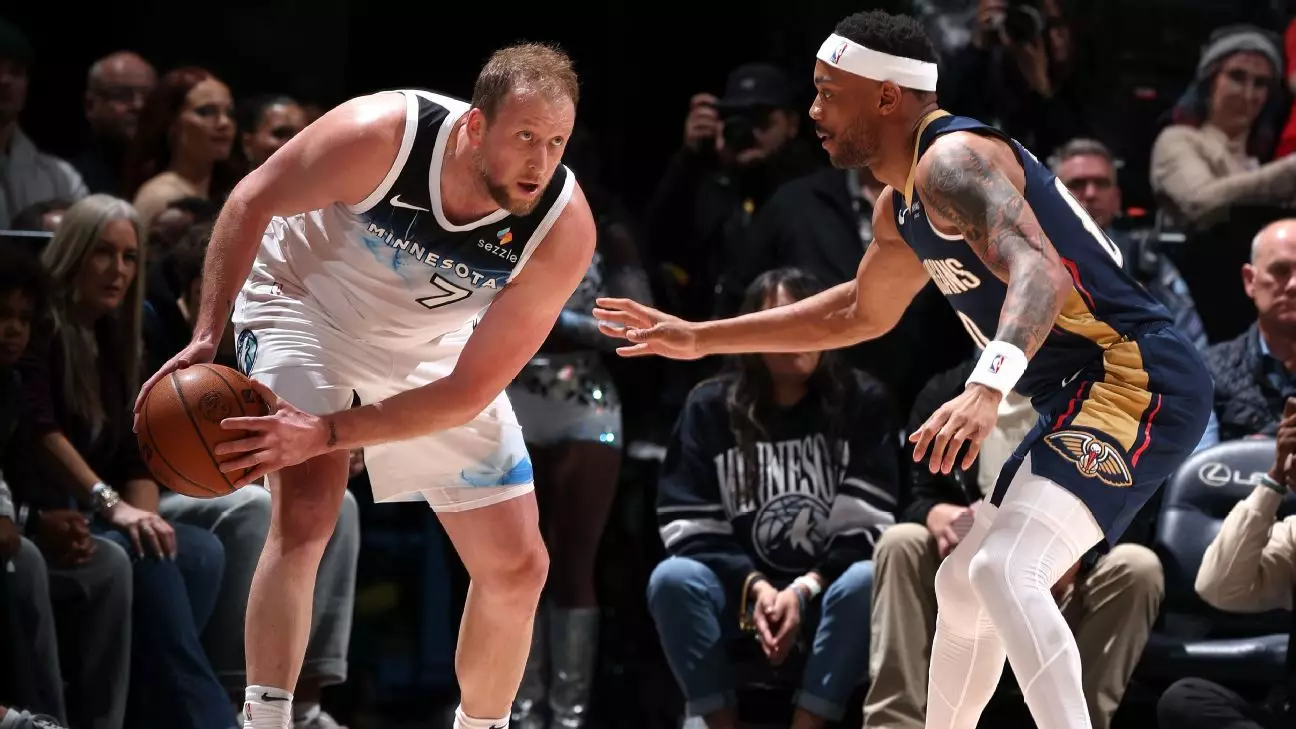In the world of sports, moments often transcend the game itself, leaving a lasting impact that resonates far beyond the final score. Such was the case during a recent game between the New Orleans Pelicans and the Minnesota Timberwolves at Target Center in Minneapolis. On that fateful Friday night, a simple basketball match transformed into a heartfelt celebration of inclusivity and awareness.
The spotlight shone not just on the basketball court but more so on family and community. Among the cheering crowd was Jacob Ingles, the son of timberwolves veteran Joe Ingles. Jacob, who has autism, experienced a momentous milestone, having attended his first full game in person. It was a triumphant occasion for Jacob and his family, particularly because they were there to witness his father finally take the court in an official capacity after a long hiatus.
The Decision to Start Joe Ingles
Timberwolves Coach Chris Finch’s decision to not only include Ingles in the roster but also grant him a starting position for the first time in nearly two years speaks volumes—not merely about basketball strategy, but about the profound human aspects behind the game. Finch’s acknowledgment that “you have to do the human thing” emphasizes how sports can serve as a platform for compassion and understanding. His decision resonated deeply with the players and fans alike, creating an electrifying atmosphere.
The game, which culminated in a resounding victory for the Timberwolves at 134-93, was secondary to the bigger story unfolding on the sidelines. While Joe Ingles may not have scored in his six minutes on the court, the emotional significance of his participation extended far beyond mere statistics. Finch’s intention to uplift not only his player’s spirits but also those of a young boy made evident that teams can champion causes greater than themselves.
Awareness and Advocacy
Ingles’ resolve to advocate for autism awareness was palpable throughout the evening. With sincerity in his voice, he expressed the urgency of discussing autism and the real impact it has on families—regardless of financial standing. “The s—‘s real,” he emphasized, reminding everyone that autism does not discriminate, and awareness is crucial for collective understanding. The night became a testament to the power of sports: as much as they are a stage for athletic performance, they can also serve as powerful avenues for advocacy and philanthropy.
In an atmosphere filled with celebration and emotion, the message that emerged was crystal clear: awareness and understanding can lift spirits. The support Jacob received from his father, siblings, and the entire Timberwolves organization showcased a unified front. It reminded everyone present—and those who would hear the story afterward—that sports can do more than entertain; they can unite communities around shared challenges and victories.
As the final whistle blew, the echoes of encouragement from the stands lingered long after. This was not merely about a game won, but about a family strengthened and a cause highlighted—a poignant reminder that in the realm of sports, the most worthwhile victories often come from the heart.


Leave a Reply